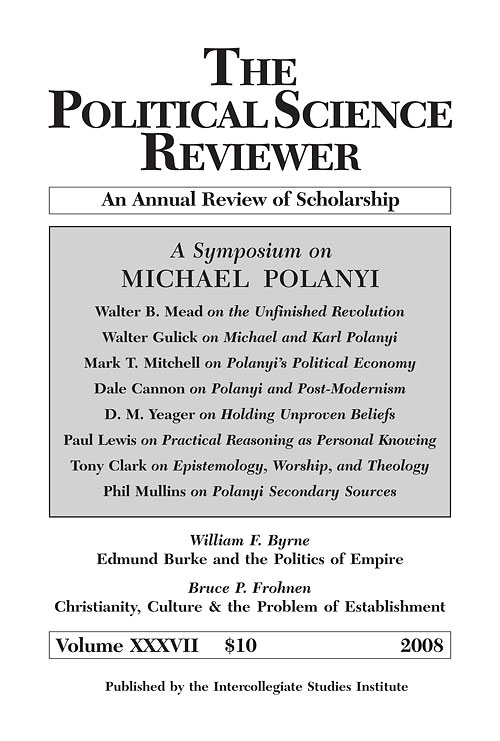Abstract
The spring of 2008 marked the fiftieth anniversary of the publication of Michael Polanyi's Personal Knowledge: Towards a Post- Critical Philosophy. Every scholar that I know who is seriously interested in Polanyi identifies Personal Knowledge as Polanyi's magnum opus. However many well-educated and interested people who try to read the book find it enormously difficult and lay it aside long before they grasp what Polanyi could be up to in calling for and trying to craft what he terms in his subtitle "a post-critical philosophy."" With a few exceptions such as that of the physicist Bill Scott who later went on to become one of Polanyi's biographers, many of the early reviews of Personal Knowledge were sharply critical. Even in a relatively favorable review, the philosopher Michael Oakeshott had this to say about Personal Knowledge:
. . . Professor Polanyi's ambition to let nothing go by default, to surround his argument with embroidery, not of qualification but of elaboration, and to follow his theme into every variation that suggests itself, makes the book like a jungle through which the reader must hack his way.
It is easy to see why Personal Knowledge is a daunting and perplexing book. As Oakeshott's comment implies, it is long— some 403 pages long; most of the thirteen chapters, broken into dense subsections, require very serious concentration and Polanyi includes detailed comments on an array of subjects. The thirteen chapters are grouped into four parts, and each part makes an argument, and these arguments build on each other. Although not as daunting as Personal Knowledge, many of Polanyi's other books and essays are also difficult and frequently leave readers exasperated and quite unclear about the coherence of Polanyi's larger philosophical perspective. Although Polanyi's prose is often lucid, many texts have an illusive quality; their larger implications are not clear, at least to those just beginning to study Polanyi. Many make a case in ways that seem quite odd. Perhaps especially seasoned philosophers find Polanyi strange. Polanyi was not a professional philosopher and he did not write primarily with philosophers as his imagined audience, but given the extraordinary interdisciplinarity of his discussions, it seems unlikely that specialists in any one discipline would be comfortable.
